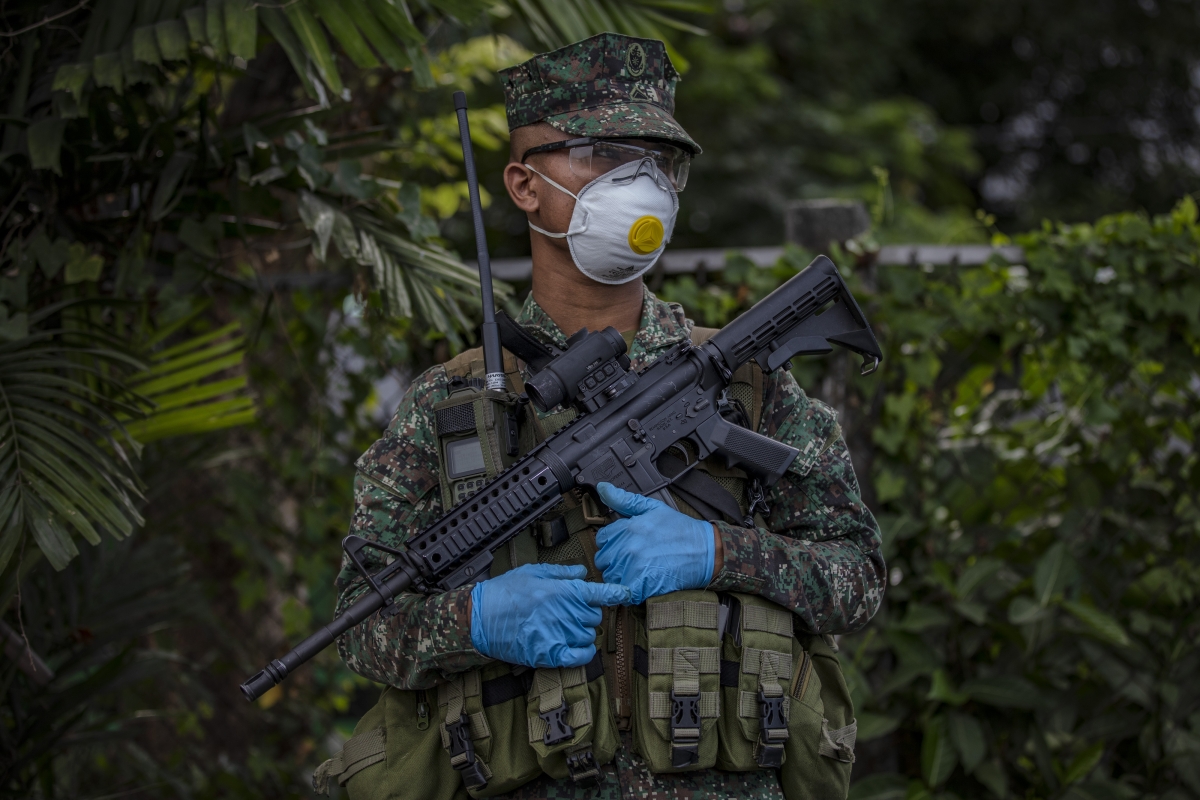[WEBCAST] Democracy and Authoritarianism Under COVID-19
VIEW EVENT DETAILSWeb-only Event

Ezra Acayan/Getty Images
Ezra Acayan/Getty Images
The novel coronavirus pandemic has challenged governments across the world as they struggle to manage the tremendous public health challenge posed by COVID-19 while trying to avoid economic collapse. There has been ample discussion about which countries have managed the crisis well thus far and which have not, and an ensuing debate about what kinds of governments have been most effective. Some have attributed the initial failure to share information about COVID-19’s potential seriousness and impact to China’s closed political system. At the same time, top-down systems such as China’s may have certain advantages in their ability to institute and enforce lockdowns, social distancing, and mask-wearing. On the other hand, the difficulties many democratic nations — particularly in the West — have faced in slowing the spread of the virus have raised concerns about the ability of democratic systems to effectively handle this type of challenge.
Are democracies or authoritarian states better equipped to deal with public health crises? What are the specific vulnerabilities and advantages that different regime types have in dealing with pandemics? Are there other factors -- from state capacity, to public trust in institutions, to the strength of health care systems – that better explain the variance in the efficacy of government responses globally? Which countries have handled the crisis best? And what lessons should policymakers glean from the coronavirus crisis thus far?
To answer these questions and analyze the strengths and weaknesses of government responses globally, the Asia Society Policy Institute (ASPI) is pleased to host a discussion with renowned journalist, author, and political scientist Fareed Zakaria. ASPI President The Hon. Kevin Rudd will join Zakaria in conversation about the experience of democratic and authoritarian states under COVID-19.
This program is part of the Asia Society Policy Institute's (ASPI) series entitled “Coronavirus, Asia, and the World.” ASPI presents web-only programs twice weekly to analyze the scope of the ramifications from the novel coronavirus across the Asia-Pacific region and the world. All events will be live-streamed on YouTube and Facebook. For information about future events in this series and for ASPI’s additional coronavirus content see here.
SPEAKERS

Fareed Zakaria hosts Fareed Zakaria GPS for CNN Worldwide, is a columnist for The Washington Post, and a contributing editor for The Atlantic. Zakaria is the author of three New York Times bestselling books: In Defense of a Liberal Education, The Post-American World, and The Future of Freedom. Prior to his tenure at CNN Worldwide, Zakaria was editor of Newsweek International, managing editor of Foreign Affairs, a columnist for Time, an analyst for ABC News, and the host of Foreign Exchange with Fareed Zakaria on PBS. In 2017, Zakaria was awarded the Arthur Ross Media Award by the American Academy of Diplomacy. He was named a “Top 10 Global Thinker of the Last 10 Years” by Foreign Policy magazine in 2019, and Esquire once called him “the most influential foreign policy adviser of his generation.” Zakaria serves on the boards of the Council of Foreign Relations and New America.
The Hon. Kevin Rudd is inaugural President of the Asia Society Policy Institute. He served as 26th Prime Minister of Australia (2007 to 2010, 2013) and as Foreign Minister (2010 to 2012). He is Chair of the Board of the International Peace Institute in New York, and Chair of Sanitation and Water for All, a global partnership of government and non-government organizations dedicated to the implementation of Sustainable Development Goal 6. He is a Distinguished Fellow at Chatham House and the Paulson Institute, and a Distinguished Statesman with the Center for Strategic and International Studies. He is a member of the Comprehensive Nuclear Test Ban Treaty Organization’s Group of Eminent Persons, and also is on IMF Managing Director Kristalina Georgieva's new external advisory group.